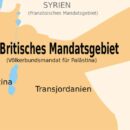Der israelische Arabienexperte Ehud Jaari sagte bei einem Pressegespräch: „Für Mahmoud Abbas ist der jetzige Zustand, zwei Regierungen in einem Land, ein idealer Zustand. „Die Palästinenser wollen die israelische Besatzung unter keinen Umständen aufgeben. Auch künftig wollen sie auf dem Buckel der Israelis sitzen.“ Die Palästinenser genießen nicht plötzlich die Besatzung, sondern ergäben sich lustlos ihrem Leiden, unfähig, die eigene Zukunft aufzubauen.
Jenen mangelnden Willen, einen Staat aufzubauen, in die Selbstständigkeit entlassen zu werden und die israelische Besatzung abzuschütteln, begründet Jaari mit der Furcht – von Israel getrennt – auf eigenen Beinen stehen zu müssen. Denn sowie „Palästina“ nur noch eines von 190 UNO-Mitgliedern wäre, könnten die Palästinenser nicht mehr mit dem Vorwand des Leidens unter Besatzung mit weiteren Geberkonferenzen rechnen. Seit Einrichtung der Autonomiebehörde 1993 flossen aus den USA, der EU und anderen Geberländern mindestens 7 Milliarden Dollar „Aufbauhilfe für einen künftigen palästinensischen Staat“ nach Ramallah, nicht mitgerechnet direkte Zuwendungen europäischer Staaten, arabische Hilfe und die Finanzierung von etwa tausend internationalen „Nicht-Regierungs-Organisationen“, sowie private und andere Spenden.
Dov Weissglas, ehemaliger Berater Ariel Scharons, sagte kürzlich, dass die Weltgemeinschaft nach Israels Abzug aus dem Gazastreifen ganze neun Milliarden Dollar bereitstellen wollte, im festen Glauben, dass die Palästinenser dort ein Staatswesen aufbauen wollten. Stattdessen brach Chaos aus.
Mangelnder Wille, einen eigenen Staat anzustreben, der in Frieden „neben“ Israel existiert, sei laut Jaari nichts Neues und schon bei Jassir Arafat erkennbar gewesen, als der israelische Angebote in Camp David und die amerikanischen Eckpunkte des Präsidenten Bill Clinton vom 23. Dezember 2000 ablehnte.
Jaaris Sicht bestätigt der ehemalige palästinensische Diplomat und Arafat-Berater Ahmad Samih Khalidi in der britischen Zeitung Guardian.
Die Notwendigkeit eines palästinensischen Staates sei zum internationalen Konsens geworden, von US-Präsident George W. Bush als „Vision“ ausgerufen und von Premier Ehud Olmert, als „Bedingung für ein Überleben Israels“ dargestellt. Khalidi beschreibt, wie nach der „katastrophalen Vertreibung von 1948″ die „separate palästinensische Identität“ verschwunden und erst durch Arafat neu entstanden sei. Erst ab der israelischen Besatzung 1967 restaurierte der „bewaffnete Kampf“ der Fatah die „Würde der Palästinenser“. Arafats „historischer Kompromiss“ von 1988, allein im Westjordanland und im Gazastreifen einen Staat zu errichten, würde den Palästinensern nur 22 Prozent von Ganz-Palästina belassen. Deshalb, so Khalidi, sei die Idee eines palästinensischen Staates eine „Strafaktion“ der „schlimmsten historischen Feinde der Palästinenser“: Israel und die Amerikaner. Khalidi analysiert, dass Abbas nur noch dank der Präsenz der israelischen Armee in Ramallah regiere. Auf den Bajonetten der Besatzer sitzend, sei „an den Aufbau eines Staates und staatlicher Institutionen nicht zu denken“.
Khalidi ist versucht, zu der internationalen Unterstützung zu sagen: „Danke, aber nein Danke.“ Er votiert dafür, Olmerts Albtraum ernst zu nehmen, wonach der jüdische Staat Israel auf Dauer, ohne Errichtung eines palästinensischen Staates, keinen Bestand habe. Die Palästinenser könnten weiterhin „nein“ zu einem Staat sagen, der sich nicht um ihre Grundbedürfnisse kümmere. „Wie auch immer, ist schwer vorstellbar, wie Israel auf Dauer diesen Kampf gewinnen kann.“ Während die islamistische Hamas ganz offen die Zerstörung Israels anstrebt, gelangt Khalidi von der „gemäßigten“ Fatah auf Umwegen zu diesem Schluss, als Vorbedingung für die Erfüllung eines palästinensischen Nationalismus.
Jaari bestätigt dieses innerpalästinensische Vakuum. Im Sommer übernahm die radikal-islamische Hamas den Gazastreifen, während die Fatah „wegschmolz wie Butter im Sommer“, ohne auch nur eine Minute lang Widerstand geleistet zu haben. Im Westjordanland sei die Fatah-Bewegung verschwunden, zugunsten von Familienclans und sonstigen Bündnissen. Gefragt, wie unter diesen Umständen Abbas und seine verbliebenen Berater Friedensverhandlungen führen könnten, antwortete Jaari: „Das können sie nicht. Die Verhandlungen dienen allein dazu, den Konflikt zu managen und für Abbas, sein politisches Überleben zu sichern.“
The Guardian – Thanks, but no thanks – Statehood does not offer the equitable and fair solution the Palestinian people deserve – Ahmad Samih Khalidi
Thursday December 13, 2007 – The Palestinian state has now become the universal standard for all solutions to the Palestinian-Israeli conflict. The international community applauds the concept. President Bush proudly proclaims it as his „vision“. The Israelis have come to it belatedly, after years of steadfast refusal and rejection.
Today Israel’s prime minister, Ehud Olmert, not only supports the idea but proclaims it as an existential Israeli interest: without it, Israel is fated to disappear under dire assault from the ever-expanding Arab population in both Israel and the occupied territories. This apparent human tide may yet bring disaster to the Jewish state, by demanding equal civil rights to those of the Jews themselves.
But statehood as such is a relatively recent addition to Palestinian aspirations. The main Palestinian impetus after the disaster of 1948 was that of „return“; it was more about reversing the loss of Arab land and patrimony, than the fulfilment of classical post-colonial self-determination, via statehood.
Driven into national concussion by the catastrophic forced displacement of 1948 and up until the mid-1960s, the sense of a separate „Palestinian“ national identity all but disappeared. This „lost consciousness“ was only reversed by the emergence of Fatah under Yasser Arafat in the Arab diaspora in the late 1950s.
It was only after the 1967 debacle that a new Palestinian national identity began to take shape. At its core was the notion of the armed struggle as a galvanising force. Armed struggle, according to Fatah, restored Palestinian dignity and gave the Palestinians a say in determining their future.
Statehood and state building had no real place in this scheme. Indeed, the first tentative proposals to establish a state in Palestine (ie the West Bank) were rejected as defeatist and a betrayal of the national cause. This was certainly not an exercise in institution building, land acquisition and state building by stealth, as in the Zionist movement before 1948. After the 1973 war, Fatah’s leaders turned to the notion again. This was largely the result of a realistic reading of the balance of power and a recognition of the limits of what force, on the part of the Arab states or Palestinian irregulars, was likely to achieve. Eventually, in 1988, Arafat himself backed the idea of a Palestinian state within the 1967 borders as a historic compromise; Israel behind these borders would get 77% of Mandatory Palestine, and the Palestinians would be reconciled to the remaining 23%.
Today, the Palestinian state is largely a punitive construct devised by the Palestinian’s worst historical enemies; Israel and its implacable ally, the US. The intention behind the state today is to constrain Palestinian aspirations territorially, to force them to give up on their moral rights, renege on their history and submit to Israel’s diktats on fundamental issues of sovereignty.
Its core is the rump Palestinian Authority that is now fundamentally sustained by the IDF presence on the West Bank. The PA is increasingly being turned into an accoutrement of Israeli occupation; its function is to serve Israeli security interests as designated by Israel itself and the US military teams that have been overseeing the buildup of Palestinian security forces.
It is very unclear how an independent state can be built on the spears of the very force that is occupying it. Or how state institutions can be constructed while the occupation continues to determine every aspect of Palestinian life.
The notion of a state was an offshoot of the Palestinian struggle and not its nodal point. Nonetheless, there was a period from the mid-1970s onwards when the state could have represented the point where Palestinian national aspirations met the boundaries of what is possible.
Now this concept is less attractive than ever. Olmert demands of Palestinians that they must give up their history. President Bush decides for them what their borders and rights must be. And Tony Blair wags a finger and tells Palestinians that they won’t get a state at all unless, it meets his high standards (sic) of governance .
The temptation is to say, thanks, but no thanks. Under such circumstances, Palestinians may just opt for something else. They could evoke Olmert’s worst nightmare and call for a more equitable and fair resolution that is built on a different basis; one of mutual respect, equality and mutuality, and a sense of genuine partnership in sharing the land.
Or Palestinians could simply continue to say no to a state that does nothing to address its basic needs. Either way, its hard to see how Israel can win this struggle in the long term.




Hinterlasse eine Antwort
Sie müssen... (sein)angemeldet sein um einen Kommentar zu schreiben.